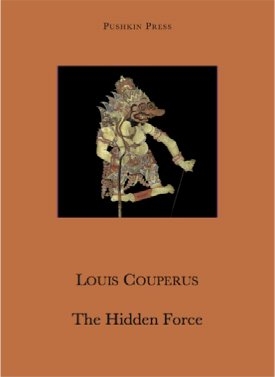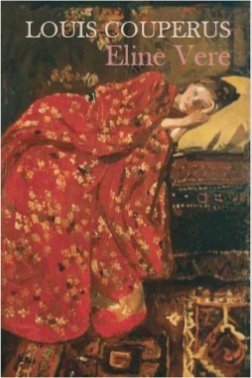The Forbidden Kingdom (16 page)
Read The Forbidden Kingdom Online
Authors: Jan Jacob Slauerhoff

The radio operator is also alienated from his country of birth, Ireland. By his own account, this was a result of rejection by the community in which he was living. He and his family were felt to be different and were not recognized as truly Irish:
We weren’t Irish. We were the last scions of the accursed Celtic race that had lived here before the birth of Christ, said the parson. No, descendants of shipwrecked mariners from the Armada, said the schoolmaster, that is, cowards who had not fought, but had fled right around Scotland.
The priest and the schoolmaster foster the notion of his family’s otherness by providing “historical”
explanations
. In Slauerhoff’s novel, national identity is problematic and exclusive, and exclusion can occur because of perceived otherness, but also because of a refusal on the part of individuals to conform. Cameron turns his back on Europe when he chooses to enter the forbidden kingdom at the end of the novel.
Issues surrounding nations, nationality and
nationalism
were at the root of European unrest in the 1930s, so Slauerhoff’s preoccupation with national cultures is not particularly surprising. In his journalistic writing, he seems to accept the historical differences between European cultures, while rejecting a fixed national
identity
for the individual. In this flexible view, an individual
is capable of being shaped by contact with other cultures. Slauerhoff’s text offers three types of culture: European, colonial and the forbidden “other”.
The Forbidden Kingdom
has an uneasy relationship with history, which the novel shows can be used to marginalize individuals. The novel itself abandons the linear historical narrative of the prologue for the unsettling dual narrative of past and present. The past is a powerful force when encountered by a lost individual like the radio operator. It liberates him from himself, and enables him to move on towards exploring a new culture, no longer a forbidden kingdom.
Jane Fenoulhet
University College London

The Hidden Force
L
OUIS
C
OUPERU
S
A mystical Javan prince and a promiscuous wife are twin challenges to Dutch Commissioner Van Oudijck’s
authority
. As he struggles to keep control of his district and his family, ancient local traditions reassert their influence and colonial power begins to disintegrate.
Translated by Paul Vincent

Eline Vere
L
OUIS
C
OUPERU
S
In 1889, Dutch society was enthralled by
Eline Vere
. Published in weekly installments it minutely describes the conventions, manners and hypocrisies of society.
Translated by Paul Vincent
Pushkin Press was founded in 1997. Having first rediscovered European classics of the twentieth century, Pushkin now publishes novels, essays, memoirs, children’s books, and everything from
timeless
classics to the urgent and contemporary. Pushkin Press books, like this one, represent exciting, high-quality writing from around the world. Pushkin publishes widely acclaimed, brilliant authors such as Stefan Zweig, Antoine de Saint-Exupéry, Antal Szerb, Paul Morand and Hermann Hesse, as well as some of the most exciting contemporary and often prize-winning writers, including Pietro Grossi, Héctor Abad, Filippo Bologna and Andrés Neuman.
Pushkin Press publishes the world’s best stories, to be read and read again.
For more amazing stories, go to
http://www.pushkinpress.com
.
English translation © Paul Vincent 2012
The Forbidden Kingdom
first published in Dutch as
Het verboden rijk
in 1932
First published by Pushkin Press in 2012
This ebook edition published in 2012 by Pushkin Press, 71-75 Shelton Street, London WC2H 9JQ
ISBN 9781908968753
All rights reserved. No part of this publication may be reproduced, stored in a retrieval system or transmitted in any form or by any means, electronic, mechanical, photocopying, recording or otherwise, without prior permission in writing from Pushkin Press
Cover
Illustration Planta da Fortaleza de Macau (1635)
© Fundo Patrimonial Biblioteca Pública de Évora, Portugal
The publishers gratefully acknowledge the support of the Dutch Foundation for Literature.
www.pushkinpress.com
